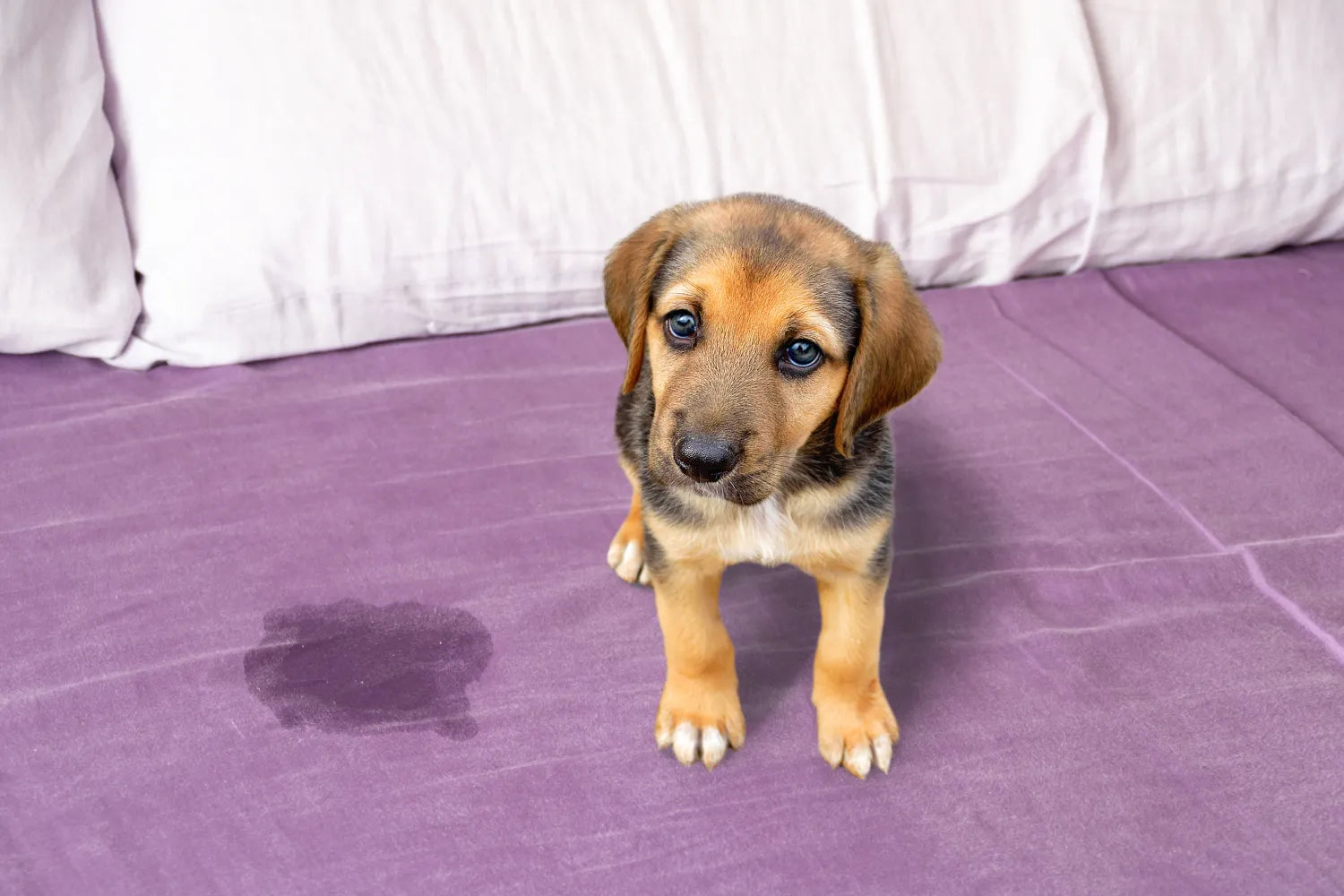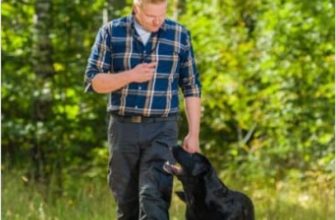
Dogs may pee on beds for various reasons. Understanding why this happens can help you address the problem effectively. Reasons My Dog Peed on My Bed
If your dog has chosen your bed as their bathroom, it can be frustrating and confusing. This behavior might stem from stress, marking territory, or medical issues. Dogs often feel safe and secure on your bed, making it an appealing spot for them.
They may also act out due to anxiety, changes in their environment, or even excitement. In some cases, it could signal a health problem that needs attention. By identifying the cause, you can find solutions to stop this behavior. Let’s explore the reasons behind this puzzling issue and how to address it.
Introduction To Canine Behavior
Dogs communicate in many ways. Peeing on your bed can mean several things. It might show stress or anxiety. Some dogs do this to mark their territory. Others may feel unwell or have a medical issue. Changes in their home can also cause this behavior. A new pet or moving to a new place can upset them.
Understanding why dogs pee can help. Watch for signs of stress. Look for other changes in their behavior. If the peeing becomes frequent, a vet visit is wise. A vet can rule out any health problems. Understanding your dog’s feelings is important for their well-being.
Marking Territory: Is Your Bed Now Theirs?
Dogs have strong territorial instincts. They mark their space to feel secure. Your bed may smell like you. This might make your dog think it’s their place. They want to show their ownership.
Signs of marking behavior include:
- Urine in specific areas.
- Sniffing around before peeing.
- Raising a leg to pee.
- Frequent pacing or circling.
Understanding these signs helps you respond better. Your bed holds your scent. This can make your dog feel safe and in control.
Anxiety-induced Accidents
Dogs can feel stressed for many reasons. Common stress triggers include loud noises, changes in routine, and new people. A dog may also feel anxious due to separation from their owner. These feelings can lead to anxiety-induced accidents.
When a dog is anxious, they may not control their bladder. This can happen even in familiar places like your bed. Linking anxiety and inappropriate urination is important. Understanding this can help prevent future accidents.
| Common Stress Triggers | Effects on Dogs |
|---|---|
| Loud noises | Fear and anxiety |
| Change in routine | Confusion and stress |
| New people | Uncertainty and fear |
| Separation from owner | Separation anxiety |
Credit: sitstay.com
Medical Issues To Consider
Urinary Tract Infections (UTIs) can make dogs pee often. This can cause accidents at home. Look for signs like straining or blood in urine. A visit to the vet is needed for diagnosis. Treatment usually involves antibiotics.
Other health concerns might also cause this behavior. Conditions like diabetes or kidney disease can lead to increased urination. Painful conditions may cause anxiety, leading to unwanted peeing. Always consult a vet for proper tests and care.
Housebreaking Hurdles
Housebreaking can be tough for many dog owners. Dogs need time to learn where to go. Training challenges can make this harder. Every dog is different. Some may learn quickly, while others take longer. Consistency is very important. Always take your dog outside at the same times. Use a specific spot for potty breaks.
Rewards help too. Praise your dog when they go outside. Treats can encourage good behavior. Accidents can happen inside, especially at first. Do not punish your dog for mistakes. Instead, clean up properly and keep training.
Keep a schedule for feeding and potty breaks. This helps your dog understand their routine. With patience and practice, they will learn where to go.
Submissive Or Excitement Urination
Dogs can pee on beds for different reasons. One reason is submissive behavior. This often happens when a dog feels scared or nervous. They might pee to show they are not a threat. It’s important to stay calm and not punish them.
Another reason is excitement urination. This occurs when a dog gets very happy or excited. They may pee a little when they see you. This is common in puppies but can happen with adult dogs too. Understanding these behaviors can help you respond better.
The Scent Remains: The Role Of Odor
Dogs have strong noses. They can smell things we cannot. When a dog pees on your bed, it leaves a scent. This scent can stay for a long time. Other pets may smell it too. They might think it is okay to do the same.
Cleaning the spot is very important. Use products made for pet odors. Regular cleaners may not work. They can leave the scent behind.
| Product Type | Use |
|---|---|
| Enzymatic Cleaners | Break down urine stains and smells |
| Odor Neutralizers | Eliminate bad smells |
| Pet-Safe Disinfectants | Clean surfaces safely for pets |

Credit: www.brilliantpad.com
Behavioral Correction And Training Tips
Use positive reinforcement to change your dog’s behavior. Reward good actions with treats or praise. This helps them learn what to do.
Be consistent. Always use the same commands. This makes it easier for your dog to understand.
Practice patience. Dogs learn at their own pace. Give them time to adjust.
Seek professional training resources if needed. Trainers can guide you and your dog. They offer valuable tips and support.
Consider group classes. They provide socialization and help with learning. Your dog can meet other dogs and people.
Remember, every dog is different. Find what works best for your furry friend.
When To Consult A Vet
If your dog pees on your bed often, it may mean something is wrong. Persistent issues can be signs of health problems. Look for changes in behavior or bathroom habits.
Signs to watch for include: frequent urination, straining to pee, and blood in urine. These signs mean you should see a vet. A vet can help find the cause.
Benefits of professional advice are clear. A vet can check for infections or other health issues. They can give the right treatment. Early help can prevent bigger problems later.
Conclusion: Restoring Harmony
Dogs may pee on beds for many reasons. Stress and anxiety can cause this behavior. Changes in their environment may confuse them.
Health issues can also play a role. A urinary tract infection can make dogs urinate more. If this happens, a vet visit is needed.
Proper training helps prevent this behavior. Consistent bathroom breaks are important. Rewarding good behavior encourages your dog to go outside.
Cleaning the area with an enzyme cleaner is vital. This removes the smell and stops repeat accidents. Keeping a close eye on your dog can help catch issues early.
FAQ about How to Stop My Dog from Peeing on My Bed
What Should I Do If My Dog Peed On My Bed?
Clean the area immediately with an enzymatic cleaner. Blot the urine with paper towels, avoiding rubbing. Wash any bedding in hot water. Ensure your dog has regular bathroom breaks. Consider consulting a vet if this behavior continues. Reinforce positive bathroom habits with training.
Why Did My Dog Pee On The Bed All Of A Sudden?
Your dog may have peed on the bed due to stress, anxiety, or a medical issue. Changes in routine, new environments, or health problems can trigger this behavior. Consult a vet if it persists to rule out any underlying health concerns.
Training and reassurance can help address the issue.
Should I Punish My Dog For Peeing In My Bed?
Punishing your dog for peeing in your bed is not effective. Dogs don’t connect past actions with punishment. Instead, focus on positive reinforcement for appropriate bathroom behavior. Ensure your dog has regular bathroom breaks and consult a vet if the behavior continues.
Understanding the cause is key to resolving the issue.
Why Do Dogs Pee In The Owners Bed?
Dogs may pee in their owner’s bed due to territorial marking, anxiety, or excitement. Illness or urinary tract infections can also cause this behavior. Proper training and addressing any underlying issues can help manage and prevent this problem effectively. Consistent routines and positive reinforcement are essential.
Conclusion
Understanding why my dog pee on my bed is important. It can be due to stress, marking territory, or a health issue. Observe your dog’s behavior closely. Look for patterns in their actions. Consult a vet if needed. With patience and care, you can solve this problem.
Training and positive reinforcement help too. Your dog wants to feel safe and secure. Addressing this issue strengthens your bond. Remember, your dog’s actions are often a way to communicate. Take the time to understand them.







